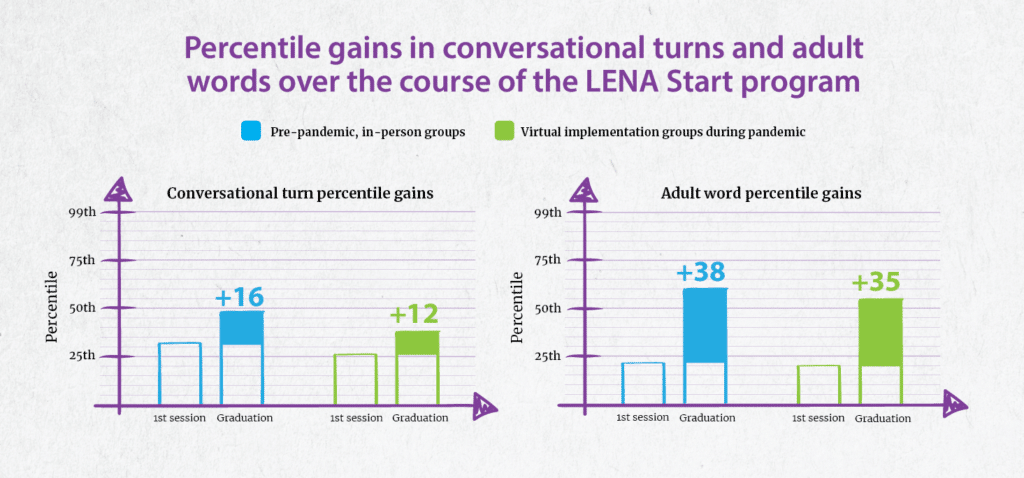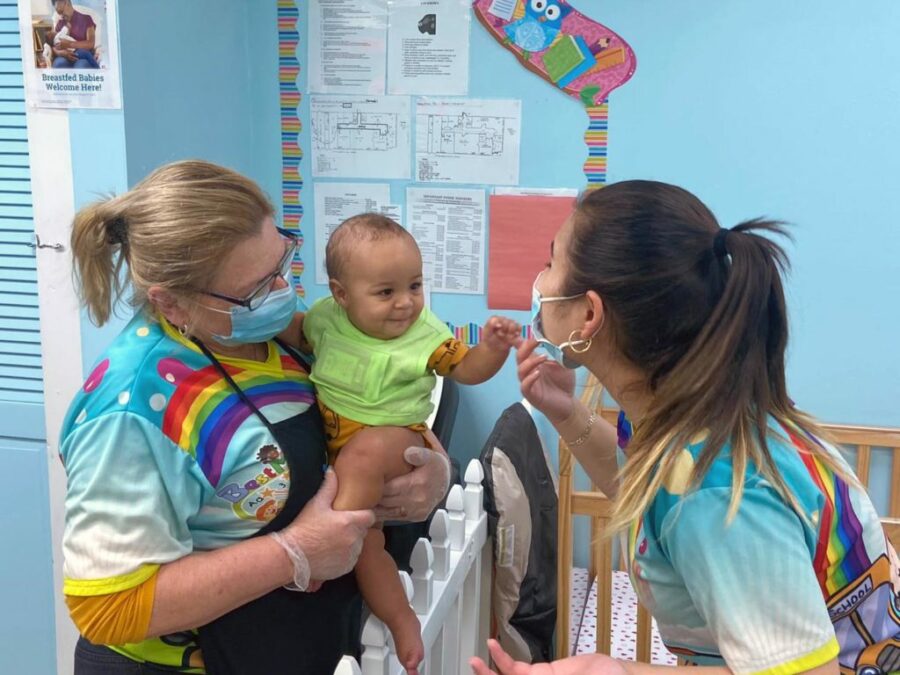LENA Start: Building Brains Through Early Talk
Members of the Children’s Services team at the Spartanburg County Public Library are ambassadors of children’s literacy who provide educational opportunities, resources, and connections to encourage lifelong learning. Such learning begins as soon as a child is born. To most, reading seems to be the obvious path to learning, but there’s a secret very few people have encountered in their life. This secret serves as the fundamental element of our daily life. We use it to connect with our peers, find solutions to problems, and apply meaning to our experiences. This secret is accessible, it’s something you can use every day, and it’s even more affordable than a book.
It’s talking.
By talking to a child you have the power to improve his life forever. Studies have shown that talk is one of the biggest factors driving brain growth. Low levels of parent-child verbal interaction in these earliest years are a key reason too many children enter school significantly behind their peers. By talking to a child, specifically between the ages of birth to three years old, you are preparing him for kindergarten which ultimately is an indicator of future success well into adulthood.
The library is devoted to the rise of Spartanburg County. By acknowledging that this will happen by investing in our children early, and with the generosity of the Mary Black Foundation, we have found a unique tool that will measure and improve the language environment of children in their earliest years.
Virtual LENA
LENA START is a free 10 week class for families with children from birth to 32 months old with the goal to help parents increase talk and encourage reading with their babies in those early years. Due to the COVID-19 pandemic, the Spartanburg County Library has begun offering LENA virtually. To register for a class, visit: www.infodepot.org/Events/Small-Talk-SC
New Data on Virtual LENA Start Classes
 New data reveal that families who participated in virtual LENA Start classes enjoyed the same positive outcomes as families who attended in-person classes.
New data reveal that families who participated in virtual LENA Start classes enjoyed the same positive outcomes as families who attended in-person classes.
The virtual implementation option for LENA Start was launched last spring in response to the coronavirus pandemic, and this is the first data available on the efficacy of the new format.
An internal review compared families who participated virtually (n = 177) to families who previously attended in-person classes (n = 1,681). Groups that used a hybrid approach were excluded for these analyses.
The virtual participants showed similar gains to pre-pandemic, in-person groups, with lower-talk families increasing conversational turns with their children by 12 percentile points and adult words by 35 percentile points. Children who participated in the program gained language skills twice as fast as their peers, the same accelerated rate as seen with in-person attendance.
“This is exciting confirmation that LENA Start is equally effective when delivered virtually,” said Dr. Jill Gilkerson, Chief Research and Evaluation Officer at LENA. “We look forward to continuing to support virtual programs as a permanent option going forward.”
The data also reaffirm the many benefits of virtual programs, including the ease of attending. Families who participated virtually had slightly higher attendance rates than families who participated in-person, confirming that virtual classes can reduce traditional barriers to attendance such as transportation or scheduling challenges.

